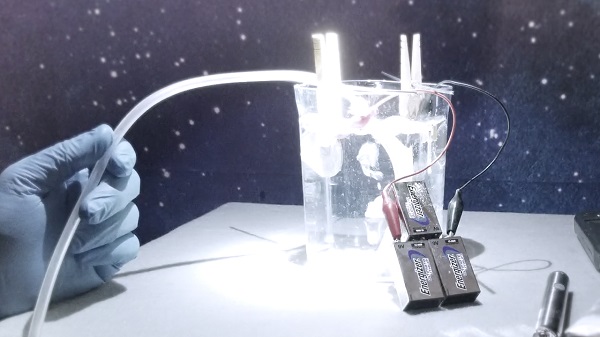
A May 2015 piece in Science magazine stated that silver interferes with the cell walls of bacteria and deprives them of the normal metabolic processes they need to survive. Silver ions punch holes in bacterial membranes and, once inside, bind to essential components like DNA. This, in turn, prevent bacteria from performing even their most basic functions.
The magazine also referenced an April 2015 study published in Scientific Reports about this phenomenon. It zoomed in on how silver nitrate caused the "zombies effect," in which bacteria killed by biocides are capable of killing living bacteria on the Pseudomonas aeruginosa pathogen. The study authors suggested that the resulting dead bacteria become reservoirs of silver that subsequently target living counterparts.
Emily Conover of Science magazine wrote that certain germs can "go zombie" when exposed to a microbe-slaying silver solution. She added that the results of numerous studies have explained silver’s long-lasting antibacterial power and could improve the performance of medical products that keep us safe from harmful pathogens.
A later study published June 2021 in Nature Communications pointed out that silver-based antimicrobials can be used alongside regular antibiotics to combat so-called super bugs. These include Staphylococcus aureus, which is often spread by contaminated hands.
S. aureus can cause a wide variety of infections that are common both in community-acquired, as well as hospital-acquired settings. Depending on the strains involved and the site of infections, these bacteria can cause invasive infections and or toxin-mediated diseases. Its treatment remains challenging to manage due to the emergence of multi-drug resistant strains, such as methicillin-resistant S. aureus (MRSA).
According to the Centers for Disease Prevention and Control (CDC), about two in every 100 people carry MRSA bacteria in their nose, but most do not develop serious MRSA infections. In some cases, MRSA can become severe and cause sepsis–the body’s extreme response to infections.
Three types of silver that fight pathogens
Extensive research has shown that the best protection does not come from only one form of silver, but three different types of silver.
Colloidal silver
Colloidal silver is a potent substance made of larger clusters of silver nanoparticles that are lacking in ionic charge and are suspended in distilled water using a method called electrolysis.
A study published in the journal Antibiotics evaluated the in vitro activity of colloidal silver against a total of 270 strains of multidrug-resistant gram-negative bacteria (45 strains of Acinetobacter baumannii, 25 strains of P. aeruginosa, 79 strains of Escherichia coli and 58 strains of Klebsiella pneumoniae) and gram-positive bacteria (34 strains of S. aureus, 14 strains of Staphylococcus epidermidis and 15 strains of Enterococcus species). Results suggested colloidal silver as an effective treatment of infections caused by multidrug-resistant gram-negative and gram-positive bacteria where the therapeutic options are reduced.
Meanwhile, a study published in the journal Carbohydrate Polymers in October 2021 found that a topical ointment containing colloidal silver particles can support your skin’s natural healing process. Colloidal silver is also known to possess natural healing properties and support optimal immune health.
Ionic silver
Ionic silver is a water-soluble substance that is composed of very tiny, charged silver particles. Ionic silver is highly reactive to other elements, which allows this potent substance to provide additional protection and natural healing support. Silver ions refer to single atoms of silver that are each missing an electron and because they lack an electron, they can "steal" an electron from any compound they come into contact with, such as rosmarinic acid, according to a study published in Advanced Textiles for Wound Care.
Biostructured silver
Biostructured silver is a unique substance that consists of a combination of ionic silver and molecules from herbal extracts. This remarkable biocompatible silver nanoparticle possesses extraordinary properties for natural skin rejuvenation and optimal healing support.
When these three types of silver are combined, their synergistic efficacy is far more powerful and diverse than any single type of silver. (Related: Breakthrough ‘Biostructured Silver’ First Aid Gel created by the Health Ranger–now available.)
Watch this video to learn about the benefits of nanosilver versus colloidal silver.
This video is from the Alternative Health Concepts channel on Brighteon.com.
More related stories:
Colloidal silver: A safe and powerful natural antibiotic.
Deadly superbugs are evolving across U.S. hospitals... Chemical medicine has NO answers (but natural medicine does).
Ten ways to use colloidal silver's amazing healing abilities.
Sources include:
Science.org
Nature.com 1
Nature.com 2
MDPI.com
ScienceDirect.com 1
ScienceDirect.com 2
Brighteon.com
Source link

